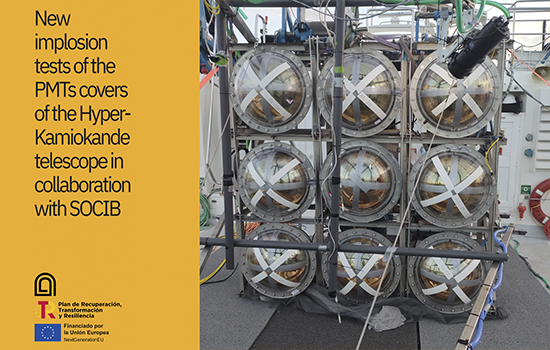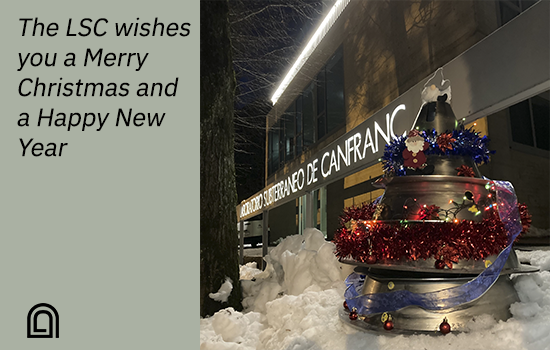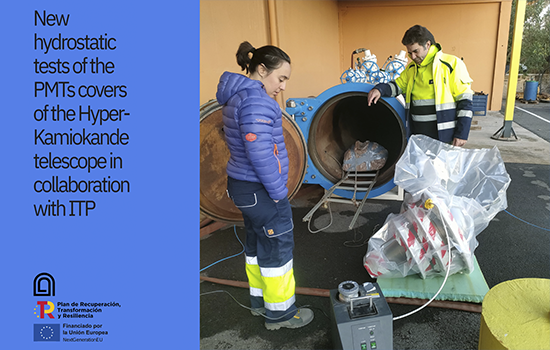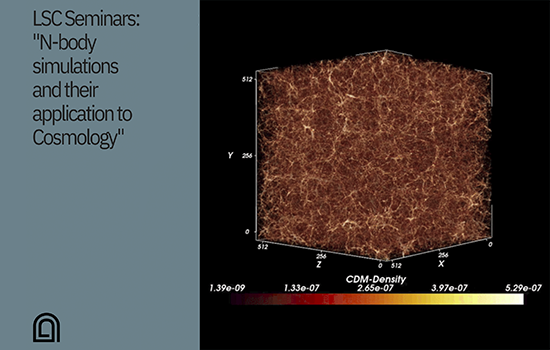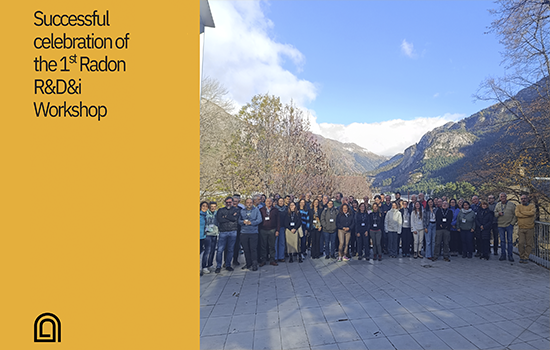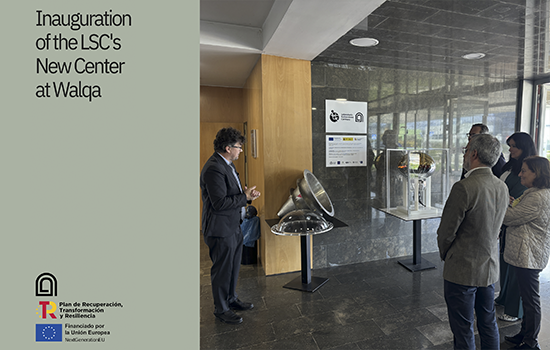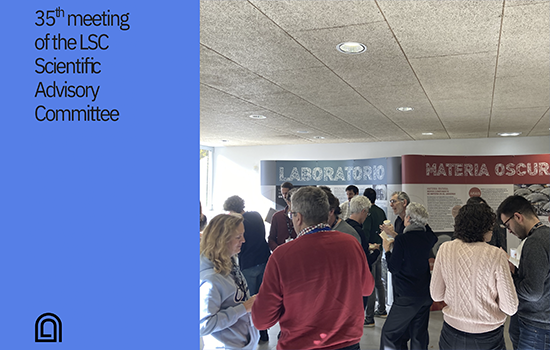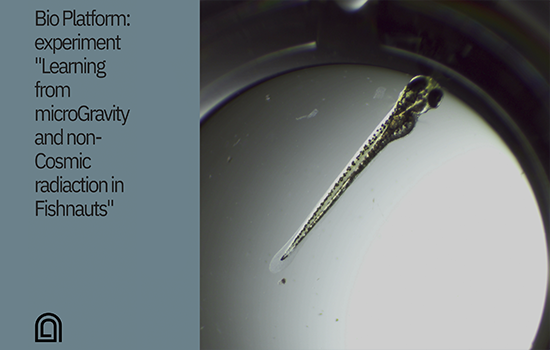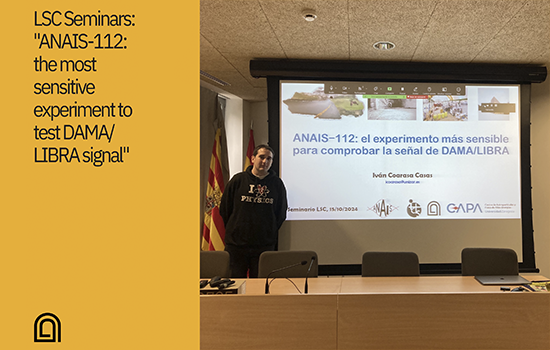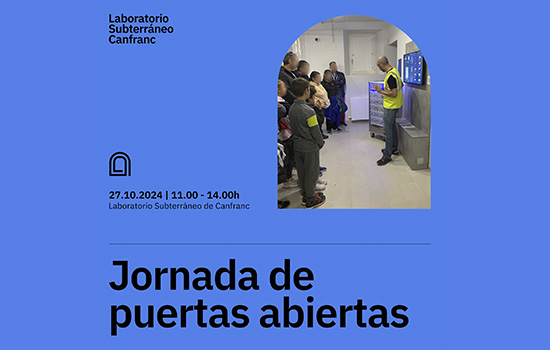January 2025
New implosion tests of the PMTs covers of the Hyper-Kamiokande telescope in collaboration with SOCIB
Last week, the eighth implosion test campaign was successfully completed to validate the protective covers of the sensors for the future HK neutrino telescope. Over three weeks, a team of 15 researchers from LSC, DIPC, UdG, and Japanese institutions conducted the tests at the SOCIB facilities in Palma. A total of six tests were carried out, confirming that the cover prototype can contain an implosion in case of failure. One step closer to ensuring the safety of the 22,000 eyes of HK.
December 2024
The LSC wishes you a Merry Christmas and a Happy New Year
The LSC wraps up another year filled with neutrinos, dark matter, and microorganisms competing for survival in low-radiation environments. We’re gearing up for a 2025 full of new challenges and exciting discoveries. Before we go, here’s a challenge for you: Could you guess what our Christmas tree is made of? Hint: In 2025, we'll continue safeguarding the 20,000 eyes of Hyper-Kamiokande.
New hydrostatic tests of the PMTs covers of the Hyper-Kamiokande telescope in collaboration with ITP
Last week, a new campaign of hydrostatic tests was completed to validate the protective covers of the sensors for the future HK neutrino telescope. A team from the LSC traveled to the ITP facilities in Mòra d’Ebre (Tarragona) to carry out this campaign. In total, six covers were tested to evaluate their resistance to hydrostatic pressure based on the contact surface and the morphology of the steel cover and the acrylic dome.
November 2024
LSC Seminars: “N-body simulations and their application to Cosmology”
Carmelita Carbone, a researcher at IASF-Milano and a member of the EUCLID collaboration, presented the high-resolution DEMNUni cosmological simulations she developed, integrating massive neutrinos into the cosmological model. Cosmological simulations are essential tools for unraveling the mysteries of the Universe, providing key insights into its origin, evolution, and composition.
Successful celebration of the 1st Radon R&D&I Workshop
From November 11 to 13, the LSC hosted the first workshop dedicated to Radon R&D&I, with a wide participation of experts and scientists. The objective of this meeting was to bring together the different groups working on research projects related to the Radon problem in Spain. The conferences promoted scientific exchange and underlined the importance of fostering new projects that generate knowledge and solutions for the benefit of society as a whole.
Inauguration of the LSC’s New Center at Walqa
On November 7th, the director of Walqa and the mayor of Huesca welcomed the LSC to the Walqa ecosystem, Huesca’s technology park, where the LSC has established a new logistics center. At this center, the PMT covers of the Hyper-Kamiokande experiment will be stored and undergo quality control before being shipped and installed in Japan in 2026.
35th meeting of the LSC Scientific Advisory Committee
On November 5th and 6th, the 35th meeting of the LSC Scientific Advisory Committee took place. The Committee heard presentations from the DArT, BabyIAXO, TREX-DM, and NEXT experiments and reviewed written reports from the other experiments. In addition, researcher Juan José Gómez Cadenas (DIPC) shared the future plan for the NEXT experiment, which includes the development of NEXT-HD: a TPC with 1 ton of enriched xenon, designed for the search for neutrinoless double beta decay.
October 2024
Bio Platform: experiment “Learning from microGravity and non-Cosmic radiaction in Fishnauts”
During the week of October 7th, the first experiment with vertebrates was conducted at the LSC, led by researcher Laia Ribas, one of the crew members of the Hypatia I project. The aim of the experiment is to study the impact of microgravity and the absence of radiation on two species: zebrafish, a key model in biomedical research, and sea bass, a species commonly used in aquaculture. The results of GraCosFish will bring us closer to the possibility of raising fish in space.
LSC Seminars: “ANAIS-112: the most sensitive experiment to test DAMA/LIBRA signal”
Iván Coarasa, a researcher from the University of Zaragoza and a member of the ANAIS collaboration, has presented the results after 6 years of data taking on the dark matter signal modulation with ANAIS. The results show an incompatibility with the DAMA/LIBRA signal at nearly 4σ. ANAIS-112 is leading international efforts in the search for this signal in a model-independent way, with a projected sensitivity of 5σ by the end of 2025.
Open Day next Sunday, October 27th
Next Sunday 27th October, we invite you to discover the Canfranc Underground Laboratory with activities for the whole family. Free entry! Enjoy: · Museum Room visits · Experimental Workshops · Workshops for Kids We look forward to seeing you from 11 am to 2 pm! Don't miss it!


